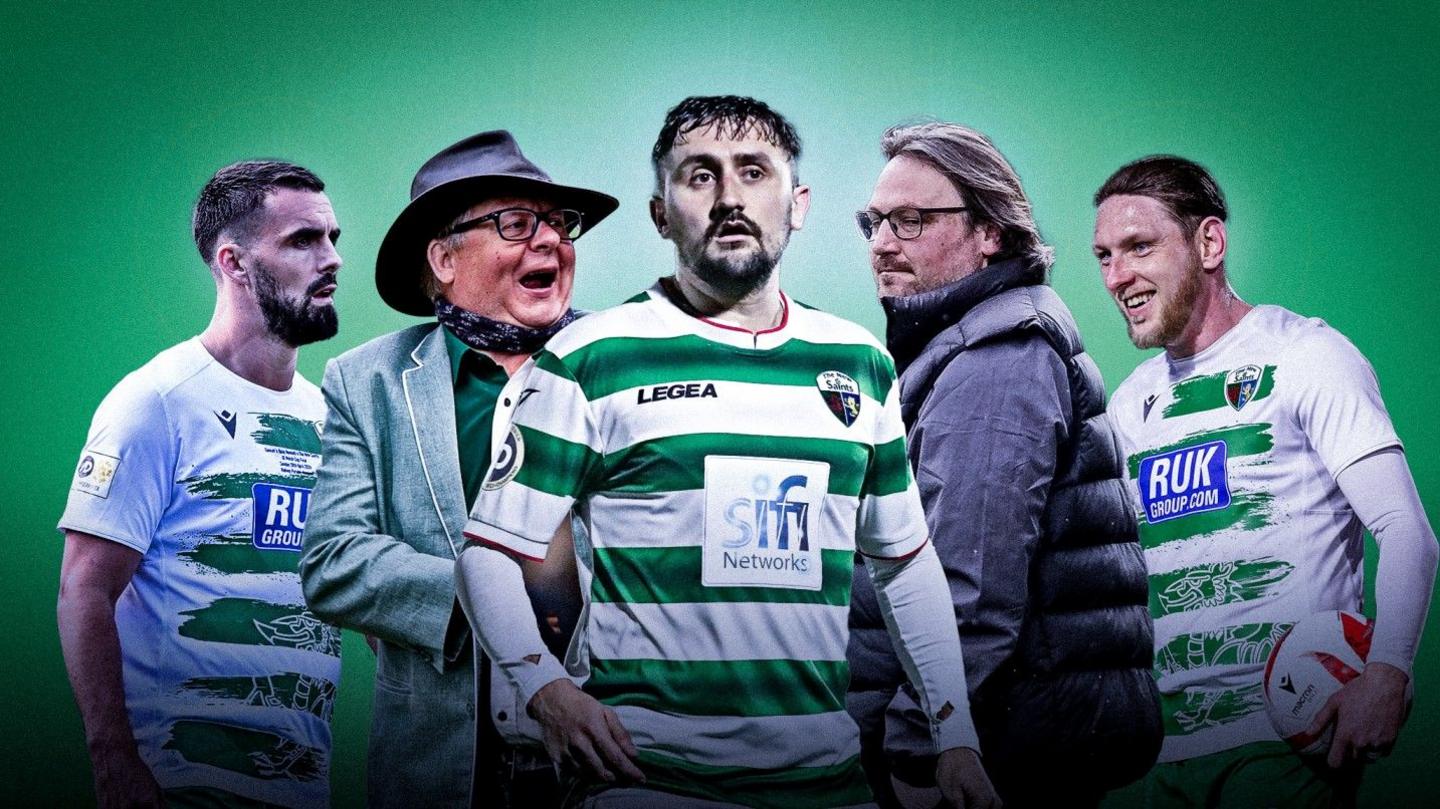From shutting off the world to taking on Europe
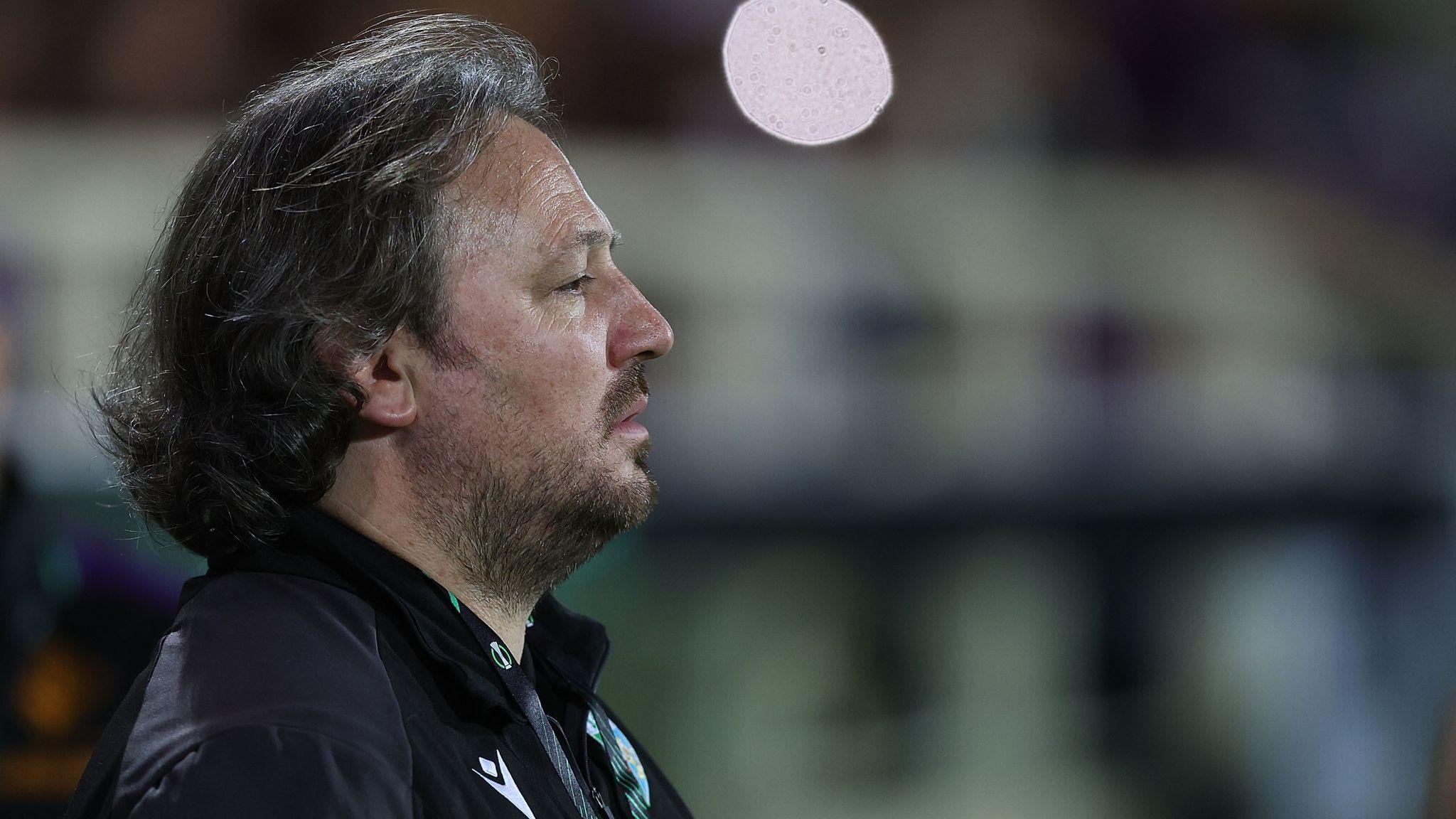
Craig Harrison is in his second spell as manager of Welsh champions The New Saints
- Published
Uefa Conference League group stage: The New Saints v Astana
Venue: Croud Meadow, Shrewsbury Date: Thursday, 24 October Kick-off: 20:00 BST
Coverage: Live BBC Sounds & BBC Radio Shropshire. Live text commentary on the BBC Sport website and app. Highlights S4C, 22:25 BST and then on demand.
Craig Harrison stood on the touchline at Fiorentina’s Stadio Artemio Franchi and allowed himself a moment.
He may well do so again on Thursday when The New Saints prepare for their second Uefa Conference League fixture as the Welsh champions welcome Kazakhstan’s Astana.
After all, it has been some journey for the 46-year-old, one he had not meant - or even wanted - to take.
“I honestly couldn’t have thought of anything worse than being a manager or a coach at a football club,” Harrison admits.
“Me and football had parted ways permanently as far as I was concerned. I didn’t want anything to do with the game.”
Nor with anyone else, as the former Middlesbrough and Crystal Palace defender came to terms with the retirement forced upon him at the age of 24 following a horrific leg injury, one that shattered dreams as well as bones.
He grieved for those ambitions, turned his back and closed the door, ignoring the knocks of family members to instead sit alone on Christmas Day with a ready meal for one.
It took a lot for Harrison to recover and stand up from that sofa in a darkened room. It took a chance meeting with a guitar player at a surprise birthday party to lead him back to football.
'It was trauma, almost grieving for my career'
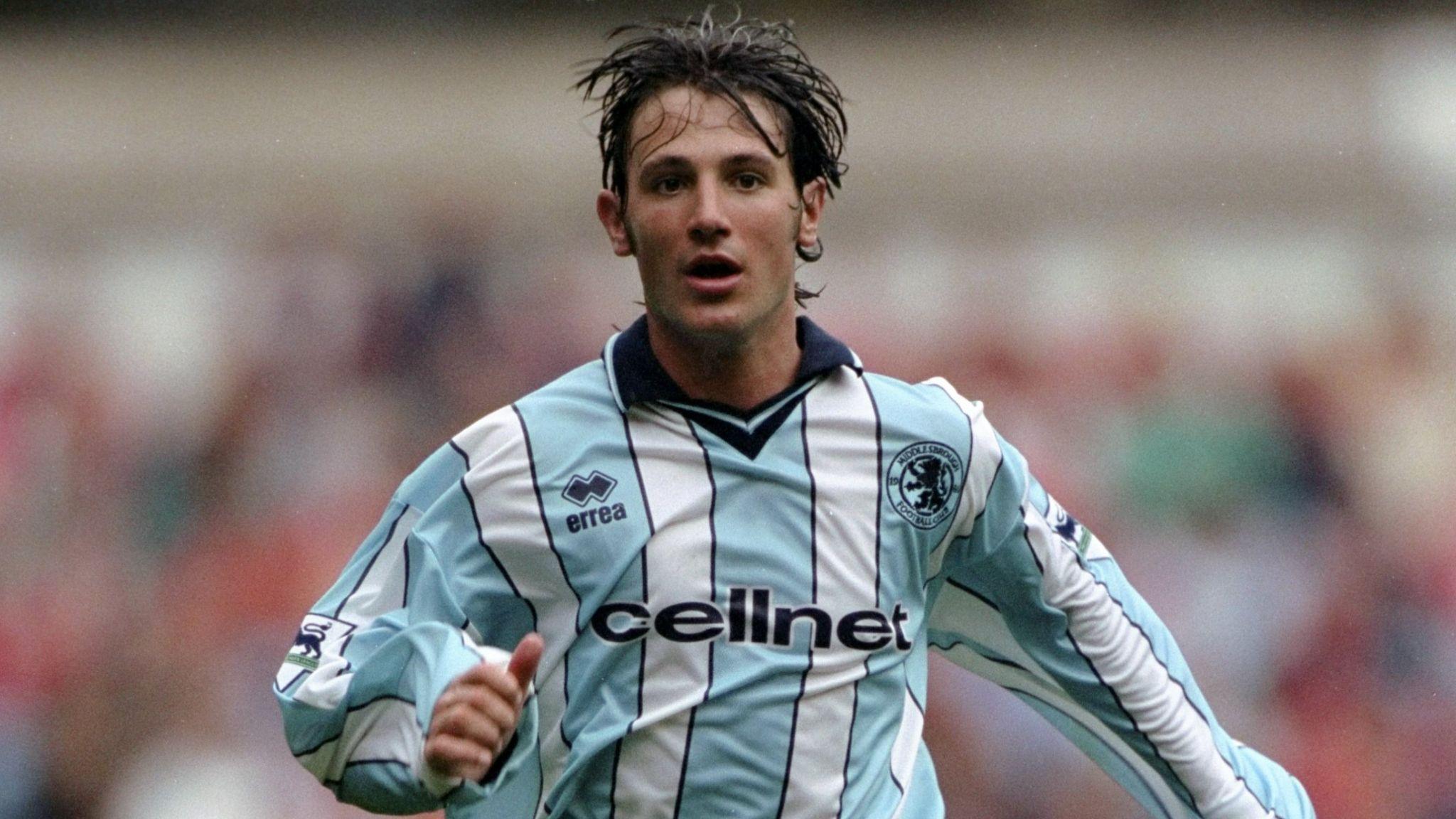
Craig Harrison was a product of Middlesbrough's academy and played for the club in the Premier League
Some 22 years on, the accidental manager on TNS’ touchline has eight titles and the honour of being the first man to take a side from the Welsh leagues to the group stages of European competition.
None of which was in the thoughts of the Gateshead teenager who, in 1998, was Boro’s young player of the year as they won promotion to the Premier League with Paul Gascoigne, Paul Merson and Andy Townsend among those in Bryan Robson’s dressing room.
Time on loan at David Moyes’ Preston followed, then a £200,000 move to Crystal Palace, before everything changed.
In a reserve match at Reading in January 2002, Harrison suffered an horrific compound leg fracture.
Skin grafts, a blood transfusion and screws followed. Three operations and 19 months later, by the age of 24 Harrison was – as far as he was concerned – finished.
“I realise now looking back it was trauma, almost grieving for my career,” says Harrison of a struggle with depression, moving back to the north east from London having also split from a long-term partner.
“There was nowhere near the support there is now – and there should still be more at a time when male suicide in young men is still high. I was in that demographic.”
The support from family and friends was there, but Harrison had spiralled down and wanted little to do with anyone.
“There were times where my mam, dad or sister were on the doorstep, knocking, but I was never going to answer,” he says, “I wouldn’t say anything, sat in my bedroom, sat in a dark room. There was at least one occasion I spent Christmas by myself eating a ready-made meal, beans on toast, not wanting anything to do with anyone. Just leave us alone.”
'A typical, arrogant ex-footballer'
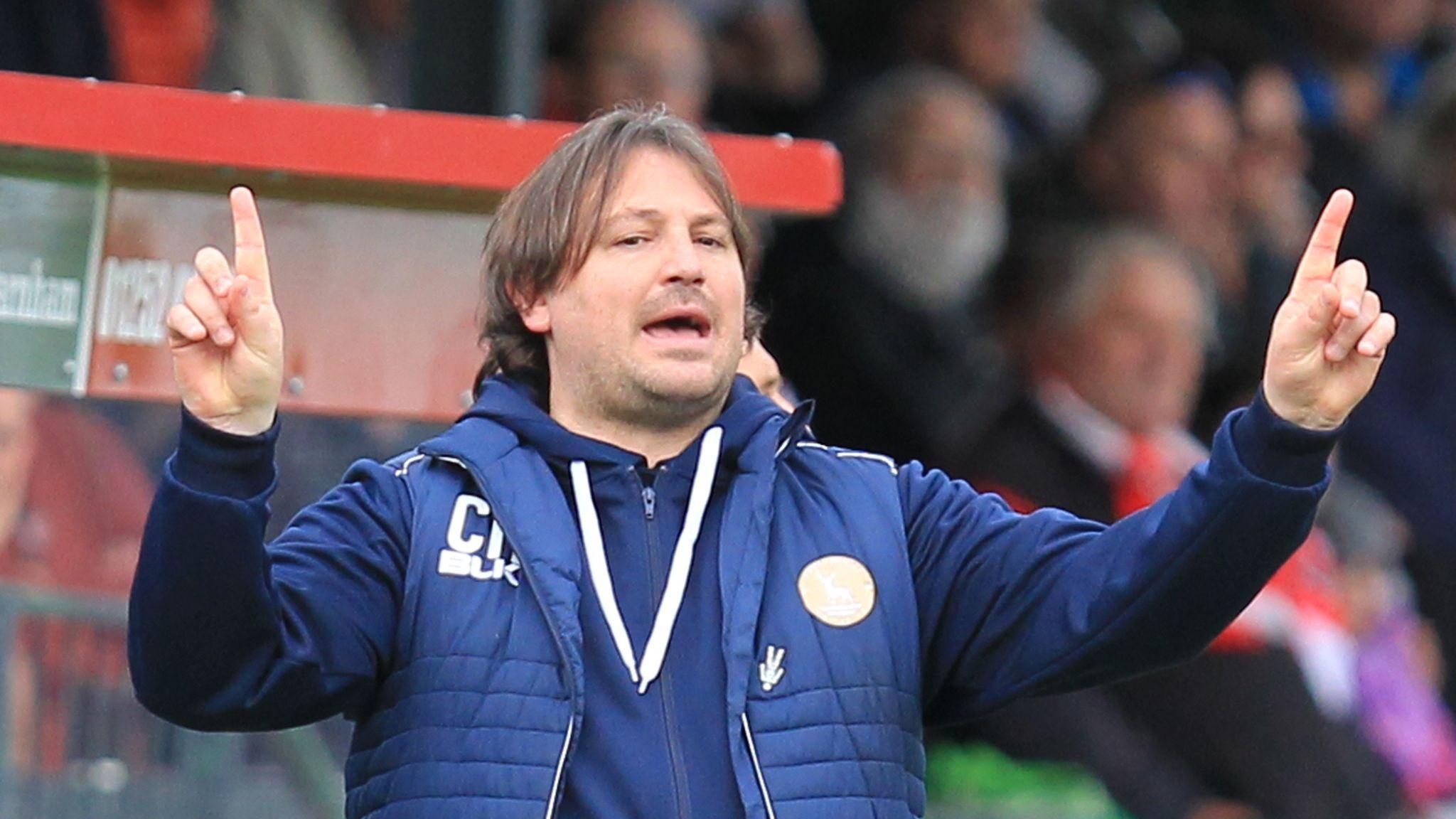
Craig Harrison had 10 wins from 36 games, with 16 losses and 10 draws, during seven months in charge of Hartlepool United
Thankfully they didn’t. The clouds lifted, enough at least to begin a new path with the help of current partner Danielle in her hometown of Chester.
Just not in football, Harrison still – as he puts it – “poisoned” by his experiences, not even watching games on TV and instead spending days on projects renovating and selling properties.
But then he turned 30 and serendipity took over, starting with a surprise birthday party.
With Danielle organising the celebration, the band she booked had let her down and, by chance, former Wrexham midfielder and keen amateur guitarist Gareth Owen was in the duo who answered an SOS to provide the background music.
Over a few beers, talk naturally turned to football. Owen, then player-manager at Welsh side Airbus, needed an assistant.
“I wasn’t interested,” Harrison recalls. “It still took a couple of weeks before he rang again, we met for a coffee, and he talked me around into saying ‘Let’s give it a go’ and I was helping out with training a couple of times a week.”
The chain reaction that led to that Fiorentina touchline had begun.
Within the year, Owen left. Harrison, with the poison gone, was moved up to manager, hurriedly booking himself on to a Football Association of Wales coaching course to try to complete the required badges.
It started with him being “a typical, arrogant ex-footballer” not interested in listening to classroom coaches, but he soon became fully invested.
Within three years Harrison was managing the Welsh champions TNS, conscious players such as Wales’ Steve Evans were little more than a year his junior, but embracing the new path he had not looked for.
With attractive football, silverware and a world record 27-match winning run, that road soon took him to Hartlepool, recently relegated from the Football League, but – in keeping – it didn't go to plan. “Horrendous” is how Harrison puts it after being sacked within seven months.
“I was always going to take my family there with me and Danielle was fully supportive, as she always has been,” he says.
“But they had the gall to demand that commitment to bring my family 200 miles with me - and yet within seven months I was being told by the same owner nothing was going to be paid. The telephone bills. The heating. The players. Me. One game at Dagenham we had to play in our away kit and didn’t have any training gear because of a laundry bill.”
Bigger perspective
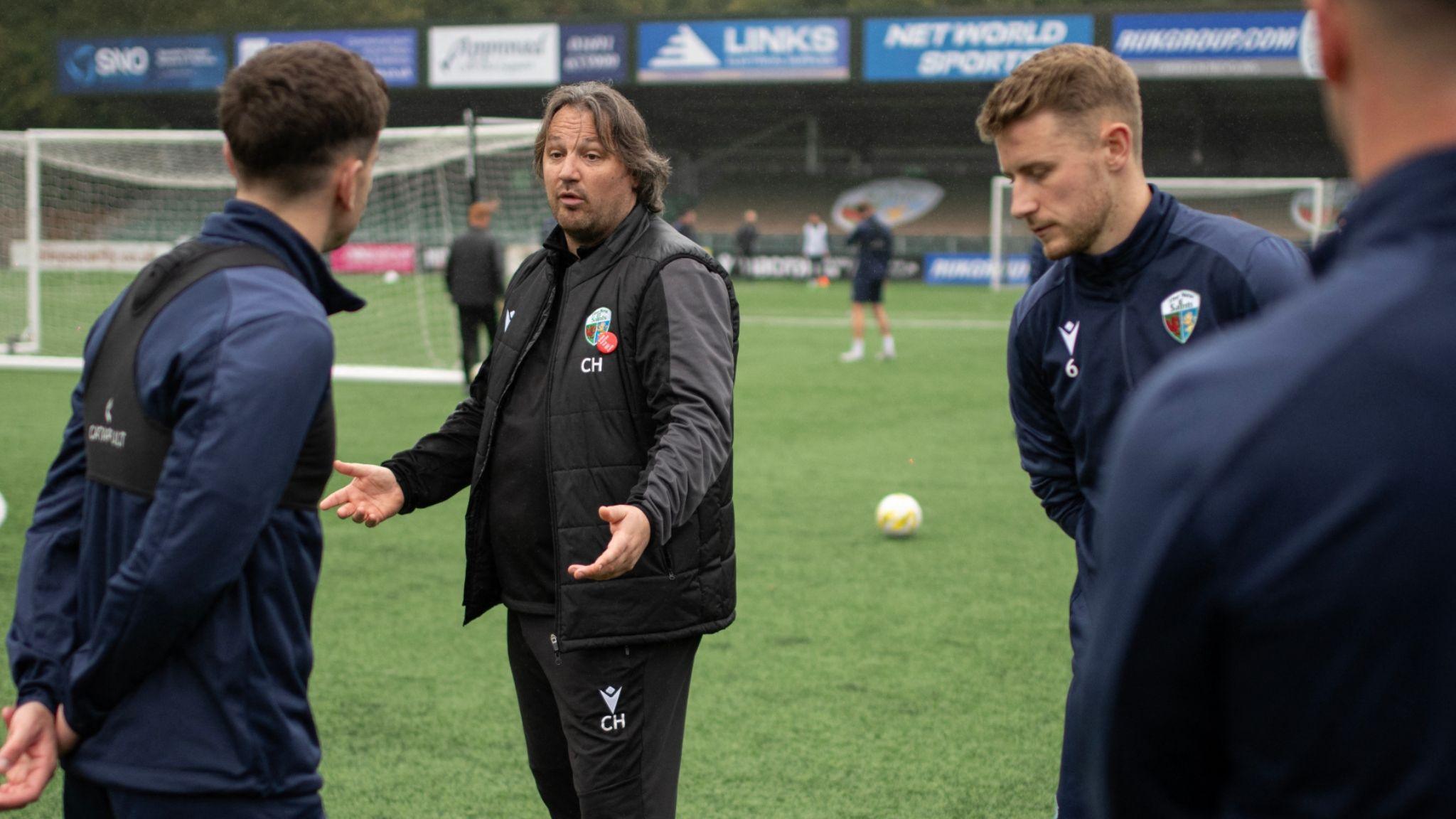
Unbeaten champions in 2023-24, TNS have lost three of their first 10 Cymru Premier games this season
And yet, Harrison says the manager stood now on the TNS touchline is grateful for it.
Not only did it allow him and his young daughter to spend time with his mother in the north east before she unexpectedly died - “that opportunity will always supersede everything else about the time there," he says - but it also showed him that losing his job did not come close to how he felt when he lost his career.
“As bad as it was, it was the best life and football experience I could have had for making me a better manager, father, husband. A better person,” he adds.
He realised he had dealt with loss and not been plunged back into past struggles, and became more at ease with himself.
Just as the flowing hair from his late-90s playing career remains, so too does his fierce determination to win or at least to give your best, born from the rain-soaked kickabout sessions on the local fields overseen by his father returning from shifts at the factory.
But, since returning to TNS in 2022, he has been able to find a balance. Former players on his coaching staff, who he is always quick to praise, rib him that he has “gone soft” and does not have rows like he used to.
Successive titles and an unbeaten season before this historic European campaign suggest he is better for it.
He has even been able to recognise that he was not the easiest to be around after defeats – as rare as they have been at TNS – finding it sad that his wife and daughter would worry about his mood after being beaten, or would creep into a different room.
“We lost three games recently and Danielle reminded me, it’s still only four in three years,” he says. “That’s not bad, that’s the bigger perspective.”
It is one Harrison has gained from an unplanned path and some dark days on the way to being an accidental manager ready to make the most of this European opportunity.
“My younger self would have not had that moment in Florence. I would have just got on with it. I was still battling with who I was and perhaps more worried about what people thought of me,” he says.
“But I heard something the other day that questioned why worry about reputation – that’s just what people think of you. It’s your character that’s important. That’s what’s set in stone.”
Whatever the path life takes.
Related topics
- Published4 October 2024
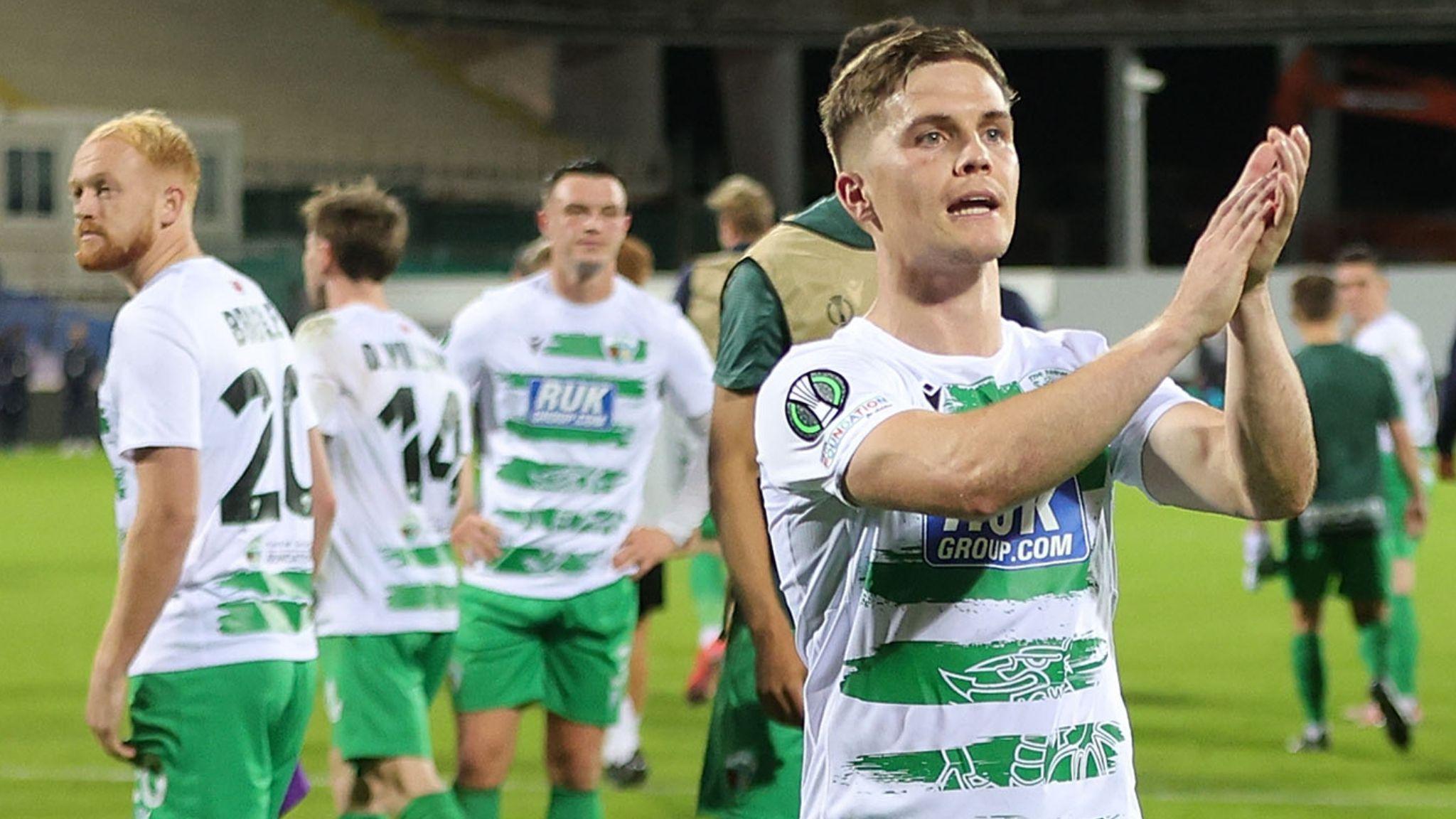
- Published2 October 2024
